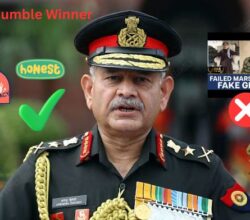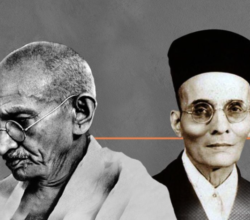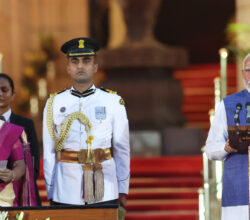A Promotion That Sparked Controversy
In recent weeks, the news of Pakistan’s Chief of Army Staff, General Asim Munir, allegedly promoting himself to the rank of Field Marshal has drawn sharp reactions both within Pakistan and abroad. While largely symbolic, such a self-promotion in the backdrop of the country’s ongoing economic crises and military setbacks raises important questions about leadership, accountability, and tradition in the armed forces.
The Power Paradox in Pakistan
Pakistan has recently faced significant losses — militarily and diplomatically. Much of its strategic posture lies in ruins, and the loss of military equipment and credibility has been glaring. In this climate, the optics of a self-conferred promotion appear not just tone-deaf but symptomatic of a deeper malaise that has long afflicted the country’s military elite: a culture of unchecked power and opulence.
It’s no secret that Pakistan’s top generals have historically enjoyed privileges that far exceed their constitutional mandate. From vast landholdings to offshore accounts and luxury homes abroad, their lifestyles often seem more befitting royalty than public servants. All this while millions of ordinary Pakistanis struggle with inflation, unemployment, and a weakening state.
In Contrast: The Indian Army’s Quiet Strength
Compare this with the Indian Army, where restraint, humility, and rootedness remain core values — often demonstrated not just in service but in retirement.
General Upendra Dwivedi, the current Chief of Army Staff of India, recently remarked in an interview that he would love to open a simple café after retirement — a small, personal dream. He advised people not to keep “running through life,” but to slow down, be present, and find peace in simplicity.
It wasn’t a strategic soundbite or PR move. It was a moment of genuine reflection, one that reflects the deep-rooted ethos of the Indian Army — a people’s army, drawn from every corner of the country, grounded in the values of service and simplicity.
Modest Homes, Big Legacies
You don’t have to look far from Delhi to find retired Indian generals living in modest homes, often in middle-class neighborhoods. They live with dignity, not fanfare. Many quietly continue to serve society — mentoring, volunteering, or simply being upright citizens. No sprawling estates in foreign lands. No extravagant titles. Just quiet pride and service.
The True Measure of Leadership
Military leadership is not just about commanding battalions or strategy rooms. It is also about character. It is about knowing when to lead from the front — and when to step back with grace. It’s about setting an example not just for subordinates, but for the nation.
When leaders seek titles rather than trust, and privilege over principle, they lose the moral legitimacy that is at the heart of a professional force. The contrast between the traditions of the Indian and Pakistani militaries is stark — not just in doctrine, but in the deeper questions of purpose and identity.
A Final Word
One model seeks power and prestige; the other, peace and public service.
In the end, a humble café may just be a more powerful legacy than a self-declared field marshal’s baton.





